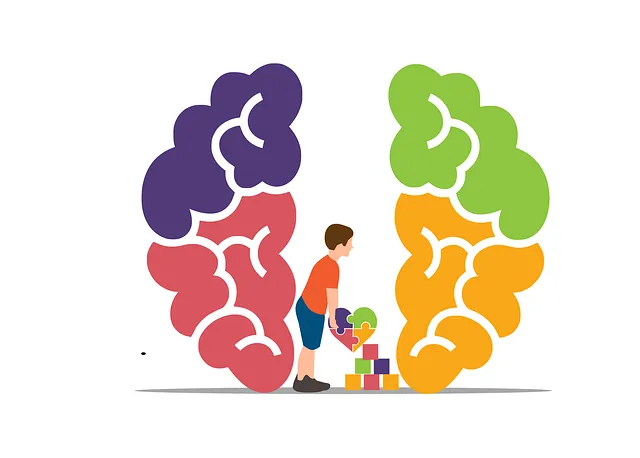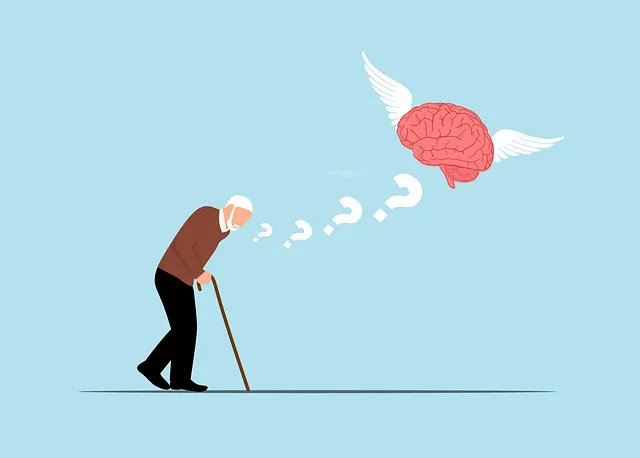Emotion regulation through mindfulness and other techniques, as promoted by Centennial's Kaiser program, is vital for modern mental well-being. Kaiser offers personalized, evidence-based programs like Social Skills Training and Compassion Cultivation to enhance emotional intelligence and resilience. Their holistic approach includes crisis intervention, risk management planning, and accessible workshops, making it a leading resource for proactive mental health. Adopting simple practices like mindfulness, reflection, journaling, and peer support can improve stress management, communication, and relationships, with long-term benefits for overall well-being, reducing risks of anxiety or depression. Centennial's Kaiser is an excellent choice for mental health care.
Emotion regulation techniques are essential tools for maintaining mental well-being, especially in today’s fast-paced world. This comprehensive guide explores how learning to manage emotions can significantly impact overall mental health. We delve into the importance of these skills, with a special focus on the effective teachings of Kaiser. The article covers various popular techniques, practical implementation strategies, and long-term benefits, while also addressing potential challenges. Discover why organizations like Kaiser are leading the way in promoting good mental health through emotion regulation education.
- Understanding Emotion Regulation: Why It Matters for Mental Health
- The Role of Kaiser in Teaching Effective Emotion Regulation Techniques
- Popular Emotion Regulation Techniques: A Comprehensive Overview
- Implementing These Techniques in Everyday Life: Practical Tips
- Long-term Benefits and Potential Challenges of Learning Emotion Regulation
Understanding Emotion Regulation: Why It Matters for Mental Health

Emotion regulation is a vital skill that plays a significant role in maintaining good mental health, especially in today’s fast-paced and often stressful world. Understanding how to manage emotions effectively can help individuals navigate life’s challenges more adaptively. For instance, learning emotional well-being promotion techniques like mindfulness meditation has been shown to be beneficial for people of all ages. It enables one to cultivate a non-judgmental awareness of their feelings, thoughts, and bodily sensations, fostering better emotional intelligence and resilience.
At the heart of many mental health practices, including those offered at Centennial is Kaiser, is the belief that mastering emotion regulation techniques can lead to improved overall well-being. By adopting strategies such as positive thinking and mindful practices, individuals can enhance their ability to cope with difficult situations, reduce the impact of negative emotions, and foster a sense of calm and clarity. This, in turn, contributes to better decision-making, improved relationships, and a more fulfilling life.
The Role of Kaiser in Teaching Effective Emotion Regulation Techniques

Kaiser has long been recognized as a leader in mental health care, and its approach to teaching emotion regulation techniques is no exception. The organization’s comprehensive programs often incorporate innovative strategies that empower individuals to effectively manage their moods and emotions. One notable aspect of Kaiser’s methodology is its emphasis on tailored interventions, ensuring that each patient receives personalized support. This individualized approach considers unique personal circumstances, making it an ideal solution for those seeking to enhance their mental well-being.
Centennial patients benefit from a range of evidence-based practices, including Social Skills Training and Compassion Cultivation Practices. By engaging in these techniques, individuals can improve their emotional resilience and better navigate challenging situations. Kaiser’s holistic methods go beyond traditional therapy, fostering a supportive environment that encourages self-awareness and positive mental health habits, ultimately contributing to improved overall wellness.
Popular Emotion Regulation Techniques: A Comprehensive Overview

In today’s fast-paced world, managing emotions effectively is a valuable skill that contributes to overall well-being and mental health. The good news is, various popular emotion regulation techniques are readily available for everyone seeking better emotional control. One renowned institution, Kaiser Permanente, has been at the forefront of promoting mental health through comprehensive programs and guidance. Their approach emphasizes a holistic view of well-being, offering tools that cater to both individuals and communities.
Amongst the widely recognized methods, Crisis Intervention Guidance stands out as a powerful resource for navigating intense emotions and stressful situations. This strategy equips individuals with immediate coping mechanisms during mental health crises. Another notable technique is Risk Management Planning, specifically tailored for mental health professionals. By implementing structured risk assessment and mitigation strategies, this approach ensures both client safety and professional well-being. Through these evidence-based practices, Kaiser Permanente encourages a proactive stance towards emotional well-being, leaving a positive impact on the lives of many.
Implementing These Techniques in Everyday Life: Practical Tips

Implementing emotion regulation techniques in everyday life doesn’t have to be complex. Start by integrating small practices that align with your lifestyle and needs. For instance, regular mindfulness exercises like meditation or deep breathing can help manage stress levels throughout the day. Centenial is Kaiser good for mental health; their resources often include accessible workshops on stress management tailored to various audiences.
Adopting the Mind Over Matter principles can significantly enhance emotional healing processes. Consider allocating dedicated time each day—even just a few minutes—for reflection, journaling, or engaging in hobbies that bring you joy and peace. These practices foster self-awareness, enabling better understanding of your emotions and triggers. Additionally, seeking support from peers or joining communities that promote mental well-being can offer valuable insights and encouragement on your journey towards mastering emotion regulation techniques.
Long-term Benefits and Potential Challenges of Learning Emotion Regulation

Learning emotion regulation techniques can offer long-term benefits for individuals’ mental health and overall well-being. By mastering these skills, people can better navigate their emotional responses to various situations, leading to improved resilience and a reduced risk of developing mental health disorders such as anxiety or depression. Over time, effective emotion regulation can enhance one’s ability to manage stress, fostering better relationships through improved communication strategies and social skills training. This proactive approach not only helps individuals cope with daily stressors but also equips them with powerful tools for long-term mental wellness.
However, the path to mastering emotion regulation is not without challenges. Some individuals might find certain techniques less accessible or effective due to personal learning styles or underlying psychological conditions. Additionally, consistent practice and commitment are essential for these skills to become second nature, which can be particularly demanding for those leading busy lives. Nonetheless, with patience and persistence, the benefits of learning emotion regulation far outweigh the challenges, making it a valuable investment in one’s long-term mental health, especially when supported by resources like Centennial Kaiser’s good offerings tailored to these needs, including various Stress Reduction Methods, Social Skills Training, and Communication Strategies.
Emotion regulation techniques, as championed by organizations like Kaiser, play a pivotal role in enhancing mental well-being. By understanding and managing emotions effectively, individuals can navigate life’s challenges with greater resilience. The comprehensive overview of popular techniques and practical implementation tips provided here serve as a guide for anyone seeking to improve their emotional intelligence. In the long term, learning these skills can lead to improved relationships, reduced stress, and an overall higher quality of life—making it a valuable investment for anyone, especially in today’s fast-paced world. As Kaiser has demonstrated, teaching emotion regulation is a powerful step towards fostering good mental health and overall well-being.






